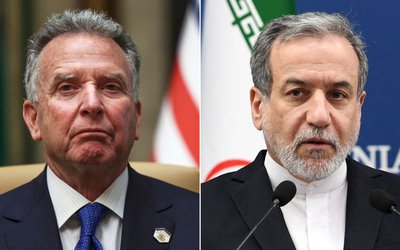More on Economy





Although Oil's slide to below $80/bbl helps curb inflation across Asia, it would not benefit the countries like Nepal and India due to offset by rupee decline.Nepal Oil Corporation even increase the price of petrolium products. Last week, NOC raised Rs.4 each in Kerosine and Diesel.
As Nepalese currency continues to fall against US dollar with record low, the global decline in oil price will have nominal impacts in Nepal.
The websites writes: http://www.marketwatch.com/story/oil-decline-gives-asia-economies-breathing-room-2012-06-22, China, Thailand and the Philippines could benefit most from lower oil prices.
According to website, this spring's tumble in crude oil prices has relieved inflationary pressure and given Asian policy makers room to maintain stimulus measures as the global economic picture darkens -- provided oil prices remain low.
Brent crude for August delivery hit $89.22/bbl Thursday, falling below $90 for the first time since December 2011, and marking a 28% decline over roughly three months.
For Asia, the selloff in oil comes at a fortunate time. Lower prices of oil and food, which are sensitive to energy costs, are helping take the sting out of inflation. That will give central banks room to ease, or at least keep loose policy settings in place, as the global slowdown saps demand for their exports.
"Rates across the region are already at a very low level," said Robert Prior-Wandesforde, head of India and Southeast Asia economics at Credit Suisse. "This helps central banks keep them there longer, or in case things in the euro zone go even more horribly wrong, gives them a little more room to ease."
Analysts say China, Thailand and the Philippines stand to benefit most from oil's plunge. In all three countries, food and fuel accounts for a relatively large share of consumer price inflation and their currencies have held up relatively well against the dollar.
In India and Indonesia, where fuel is heavily subsidized, the decline in oil prices will lighten the fiscal load, potentially freeing up funds for other kinds of stimulus like infrastructure spending. India's subsidy bill for fuel, food and fertilizers was estimated at 13% of this year's federal budget, while in Indonesia fuel subsidies alone have ballooned to around 15% of the budget.
On the other hand, Malaysia, the region's sole net exporter of oil, could see growth slow as oil prices slide.
Oil's slump has added to expectations that China and India will ease policy soon, even after the Reserve Bank of India surprised observers Monday by holding its policy rate steady.
Bank of Thailand Gov. Prasarn Trairatvorakul said Wednesday that lower oil prices and the global slowdown have reduced inflationary pressure. Thailand kept its policy rate steady last week, saying slow growth is now the biggest risk.
Thailand's economy -- where oil consumption is equivalent to 10% of GDP, the highest in the region -- is among the most sensitive to oil price swings, according to Credit Suisse.
Crucially, the recent decline in Asian currencies hasn't been nearly as steep as the fall in oil. That means lower oil prices will feed through to most economies without being substantially offset by exchange-rate adjustments, Citigroup Chief Asia Pacific Economist Johanna Chua said.
Central bank intervention to curb currency volatility is a big reason for the disparity in the degree of oil price and currency declines, Ms. Chua said.
An exception is India, where the rupee has weakened 11% against the U.S. dollar in the past three months. That means the drop in oil prices won't translate to lower inflation, tying the RBI's hands.
In contrast, the Chinese yuan has slipped by less than 1% against the dollar over the past three months, while the Philippine peso has actually gained by 1.8% against the dollar.
Cheaper oil will also improve current account balances throughout most of Asia, since most countries are net importers of oil. That's particularly important in India, where a widening current account deficit has contributed to the rupee's decline.
Export powerhouses Korea and Taiwan may gain an indirect benefit from cheaper oil: If U.S. and European households are spending less on gasoline, they'll have more to spend on imported cars, electronics and consumer goods.






